To view past issues of the Student Resources, please
visit our archives.
|

A Note From The Editor
by Jasmine Lake, OTD
A New Journey
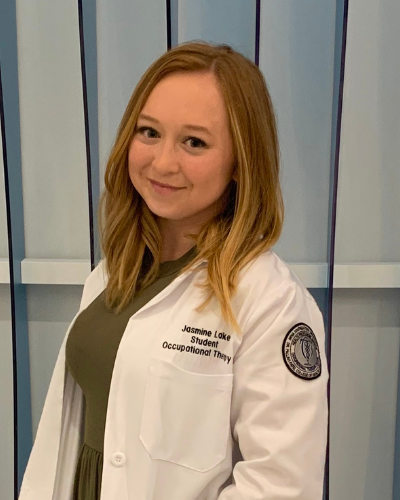
Hello FOTA Student Members! As you might have noticed, I am a new editor to the FOTA Student Resource page so I would like to take this time to introduce myself. My name is Jasmine. I am a second year OTD student at Nova Southeastern University. I am currently interested in neurorehabilitation and the role of occupational therapy for individuals recovering from traumatic brain injuries and stroke.
I am forever grateful to Dr. Ram, the previous FOTA student resource editor, for passing the torch to me. I have big shoes to fill and I hope to make her proud. Dr. Ram is now off being a leader in the clinical world of occupational therapy and is making her mark in other ways.
I recently created a vision statement for one of my courses, which stated that I strive to be a leader that creates positive change, not only in myself, but in others in order to promote health, well-being, and participation in all areas of life. For my role as the FOTA student resource editor, I hope to create positive change here through sharing each other's thoughts, connecting with others, and creating a community of OT students.
If you would like to contribute to the page or have any suggestions for topics you want to hear about, please email me at [email protected]. I look forward to hearing from you!
Much love,
Jasmine Lake, OTD-S

What is Telehealth?
By Steven Dinnen
What is telehealth, and why do I, as a graduate student, need to be concerned about it? Telehealth is a tool to help healthcare workers provide health services to nearly anyone. Also, we can work with almost any professional too. For many students, like myself, we started our graduate school program in a virtual world during the pandemic. As students, the job market will be completely different from what we expected when we graduate. Companies will be looking for therapists with virtual environment skills in clinics, hospitals, and other practice areas. We are those therapists!
These are just a few that I have learned so far, and as I progress through my program, I will be adding more to my skill set.

These skills are:
- Professional background.
- Projecting your voice.
- Teaching your client how to use the technology.
- Becoming an advocate for the telehealth.
- Understanding how to deliver services through a computer screen.
As occupational therapists, we teach our clients new skills to succeed in their daily occupations and adjust to changing times. Now it is time for us to do the same, and become proficient in another skill for our every changing profession! Telehealth will be an exciting new field for us to explore and service more patients than ever before. I hope you all are as excited as I am to be a part of the Telehealth healthcare community.
Steven Dinnen

Doing, Being, Becoming and Belonging in OT School
By Daisy Alvarado
The last semester of didactic courses before heading out to level II fieldwork can be intimidating. In the first few weeks of the semester, I have wondered if I am prepared, have learned enough, or do I have what it takes to help my future clients. This concern meets excitement as we get closer to learning where we have been placed for the 12 weeks that await us this summer, and on top of that, there is the never-ending reading list and class assignments that balance delicately in the scale of stress, concern, and excitement. My motivation for this semester comes from a statement that Dr. Thomas Decker, one of my professors, made in the first week of OT school. He said, “You are already occupational therapists.” At that moment, he made success feel possible and gave us a glimpse of the growth we would experience. In the next few months that lead up to level II fieldwork, I am taking Dr. Decker’s words and the lessons I have learned from the Doing, Being, Becoming Framework by Dr. Ann Wilcock to guide my preparation for what awaits in my level II fieldwork.
Doing
OT school requires a ton of doing: reading, assignments, notes, group work, projects, etc., and these next few months will also consist of preparation for fieldwork. Such as:
- Organizing my OT toolkit and binder for use at my fieldwork site
- Practicing healthy sleep habits and sticking to a sleep routine in preparation for long days on fieldwork
- Getting my steps in for the day as I expect a large portion (if not all) of fieldwork will be on my feet
- Ensuring that I gain the knowledge, ask the questions, and seek clarification in any areas that remain unclear before heading out to fieldwork
Being
Being a student is a role with responsibility and opportunity. I have often struggled with the role of a student and not knowing everything, but I am slowly discovering IT IS OK TO NOT KNOW EVERYTHING. We have many responsibilities as students with one of those being the work that comes to ensure learning. But above all, being a student is allowing ourselves the opportunity to learn. I have amazed myself with how much more I have learned and the new perspectives I have seen by saying “I do not know/understand, could you explain it to me?” or allowing myself to make a mistake and be corrected.
Becoming
In the first week of OT school, I could not have imagined where I would be today. The process of becoming the occupational therapist I strive to be has been filled with plenty of ups and downs and moments of excitement and stress. However, these ups and downs have made the journey even more memorable. For all other students, this is the moment in which we get to craft ourselves and explore. As the next generation of occupational therapists, we will not only create our futures but the future of the profession. We get to play a part in the becoming of the occupational therapy profession.
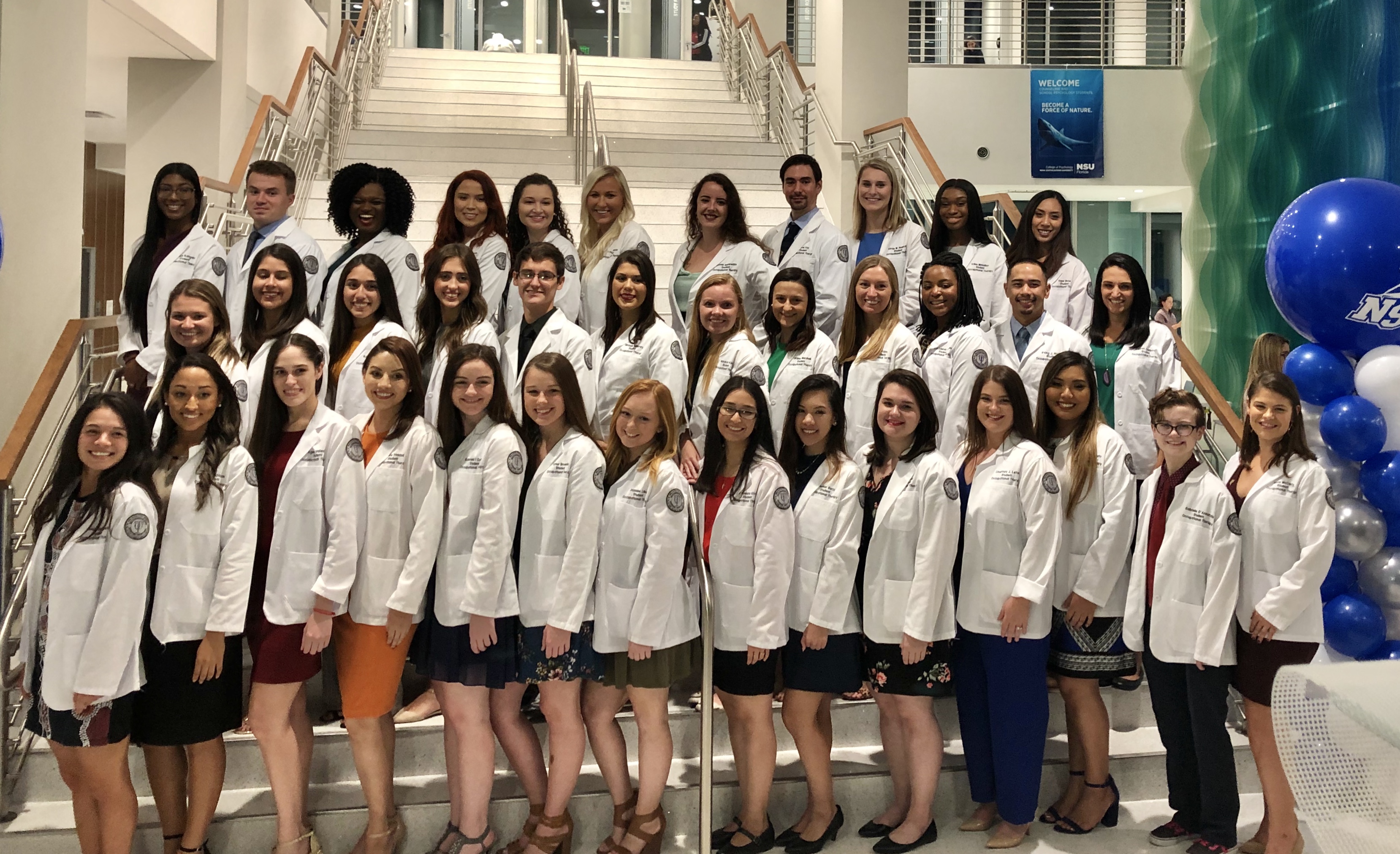
Belonging
As a student in OT school, I belong to not only a cohort or a program, but a larger community of professionals. Networking throughout my OT journey has been vital in sustaining my motivation by giving me role models. These role models have helped me form a vision of what I want to do, who I want to be, and what I will become in this profession of occupational therapy.
To any other students preparing for level I or level II fieldwork, I hope Dr. Decker’s words inspire you. “YOU ARE ALREADY AN OCCUPATIONAL THERAPIST.” In the end, we will look back in awe at the growth of those 12 weeks. To all others in the OT community, applicants, new students, students, graduates, and practitioners, continue doing, being, becoming, and belonging.
Daisy Alvarado
Quick Guide for Brain Injury Rehabilitation
By Pooja Surkanti
As a student coming fresh off a fieldwork experience working with acquired brain injuries, I thought I would share some areas of importance for any future students interested in this setting. Brain injuries are unpredictable and complex, but your fieldwork experience doesn’t have to be!
Splinting
Brain injury often results in hypertonicity (spasticity) in the upper extremities, which prevents functional movement and can lead to serious issues if left unaddressed. Splinting gives us the opportunity to provide a gentle stretch to the limb to maintain proper positioning and prevent joint contractures. In the inpatient setting, the most common splinting interventions include resting hand splints, bivalve splints, and serial casting.
Medical concerns
A brain injury is often accompanied by a whole host of medical concerns. These are the primary ones I have learned to look out for.
- Deep Vein Thrombosis (DVT): Blood clots may form after a brain injury due to decreased blood flow and movement in the legs. Signs include swelling, warm areas in the legs, a lump or a hard spot near a vein, or low fever. Staying active and doing range of motion exercises every day are good ways to prevent DVT.
- Heterotrophic Ossification (HO): HO is characterized by a build-up of calcium around joints in the body. It causes decreased range of motion in that joint. Signs include redness, stiffness, and decreased ability to move the affected joint.
- Hydrocephalus: Hydrocephalus is characterized by a buildup of fluid in the ventricles of the brain. The first sign is usually a change in the patient’s level of arousal. If a CT scan confirms hydrocephalus, typically the neurosurgeon places a shunt to drain the excess fluid.
Vision
Visual deficits are very common after a brain injury, and occupational therapists are the primary discipline to address functional vision. Although a patient may have 20/20 acuity, there are numerous deficits that can prevent individuals from functioning independently. Some of the most common are convergence insufficiency, nystagmus, diplopia, and visual field defects. It is imperative that patients are screened for visual deficits as part of their evaluation.

Neurobehavioral deficits
The majority of moderate to severe TBI patients have neurobehavioral sequelae, including cognitive deficits, changes in personality, and executive dysfunction. Patients may have difficulty sustaining attention to tasks or following instructions, which is important to consider when treatment planning. As a result, they may become irritable, anxious, or depressed. Aggression is also a commonly reported behavioral symptom of TBI. I found that it was best to speak to patients in a calm, low voice and use short, concise sentences.
Although I would recommend reading up on these topics, know that much of your learning will occur “on the job”, so be ready to take in new information every single day! It can be scary, but I can’t stress enough how important it is to remember that each patient is a valued, and a loved human being with a family and unique backstory. Underneath all the complex deficits, they are just regular human beings that suffered an unexpected, catastrophic injury. No matter what setting you are in, I hope you find meaning and value in your role as an occupational therapist as you help patients through the healing process.
Pooja Surkanti
Your FOTA Membership dollars are at work! The FOTA board is pleased to announce a partnership with AOTA to enable your state association to offer a scholarship to an OT student. Monies from a long-held, but small scholarship fund in the name of Myra McDaniels were given to the AOTF to manage. AOTF reported this month that over 1,000 students began the process and over two hundred students submitted their applications. The Scholarship Selection Committee reviews applications on a yearly basis. Your Association Board and future
recipients of this scholarship thank you for your membership! For more information visit:
About Student Resources:
 Jasmine Lake, OT/S, Student Resource Editor Jasmine Lake, OT/S, Student Resource Editor
My name is Jasmine Lake and I am a second year Doctor of Occupational Therapy student at Nova Southeastern University! I graduated from the University of Florida with a bachelor’s degree in health science on a pre-OT track. I am currently interested in neurorehabilitation and the role of occupational therapy for individuals recovering from traumatic brain injuries and stroke. I have always believed that a disability does not define the person or their limits and to always treat the whole person, so I am proud to be a part of a profession that shares these values.
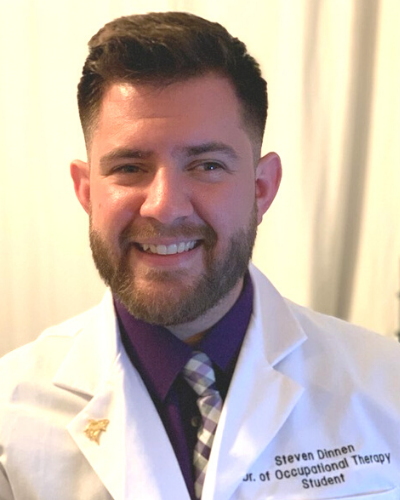
Steven Dinnen, OTD-S, Guest Writer
My name is Steven Dinnen. I am a first-year occupational therapy doctorate (OTD) student at Nova Southeastern University (NSU). I am interested in neurorehabilitation with a focus on Traumatic brain injuries and strokes. I have my undergraduate degree in Exercise Science from the University of South Florida (USF), and I am an American Council of Sports Medicine (ACSM) certified exercise physiologist.
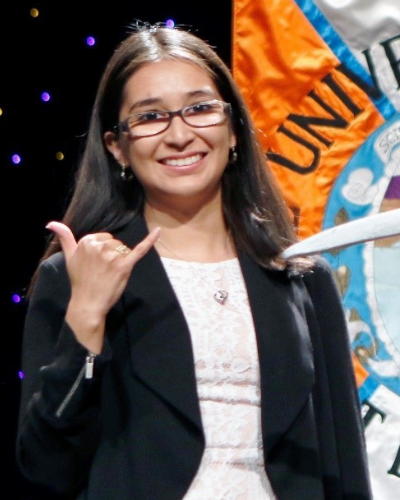 Daisy Alvarado, OTD-S, Guest Writer Daisy Alvarado, OTD-S, Guest Writer Hello, my name is Daisy Alvarado! I am a second-year Doctor of Occupational Therapy Student at Nova Southeastern and a graduate of the University of Texas at El Paso with a B.S. in Biological Sciences and minor in Biomedical Engineering. My love for the OT profession comes from the integration of science and art that focuses on empowering each individual in a holistic and personalized way. OT has challenged me to view science and healthcare from different perspectives, and I believe OT has the tools to revitalize the healthcare field for the future.
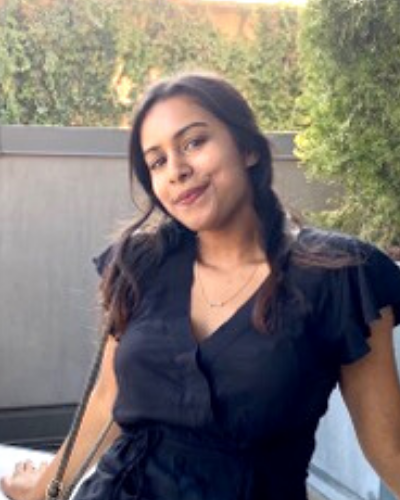 Pooja Surkanti, OTD-S, Guest Writer Pooja Surkanti, OTD-S, Guest Writer My name is Pooja and I’m a third year OTD student at University of Florida! I also completed my undergraduate degree here, where I studied Psychology and Health Disparities. I’m excited to be contributing to FOTA because there are so many unique populations, settings, and diagnoses in the field of occupational therapy that often go overlooked because of how vast our field can be. I hope to bring awareness to some of these topics by writing about them. I am particularly interested in brain injury advocacy and rehabilitation. In my free time, I love reading, playing board games, and painting!
|
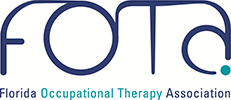
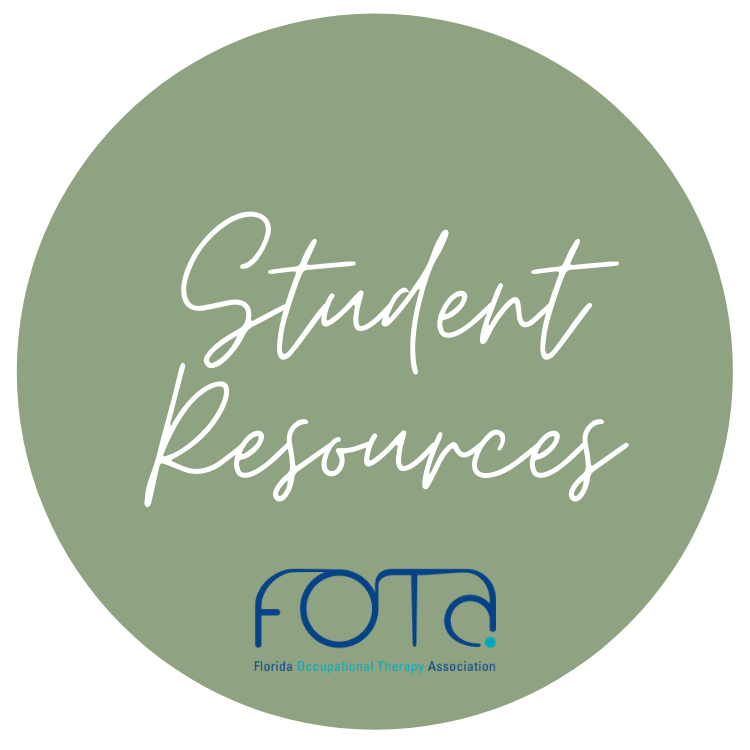 Student Resources
Student Resources





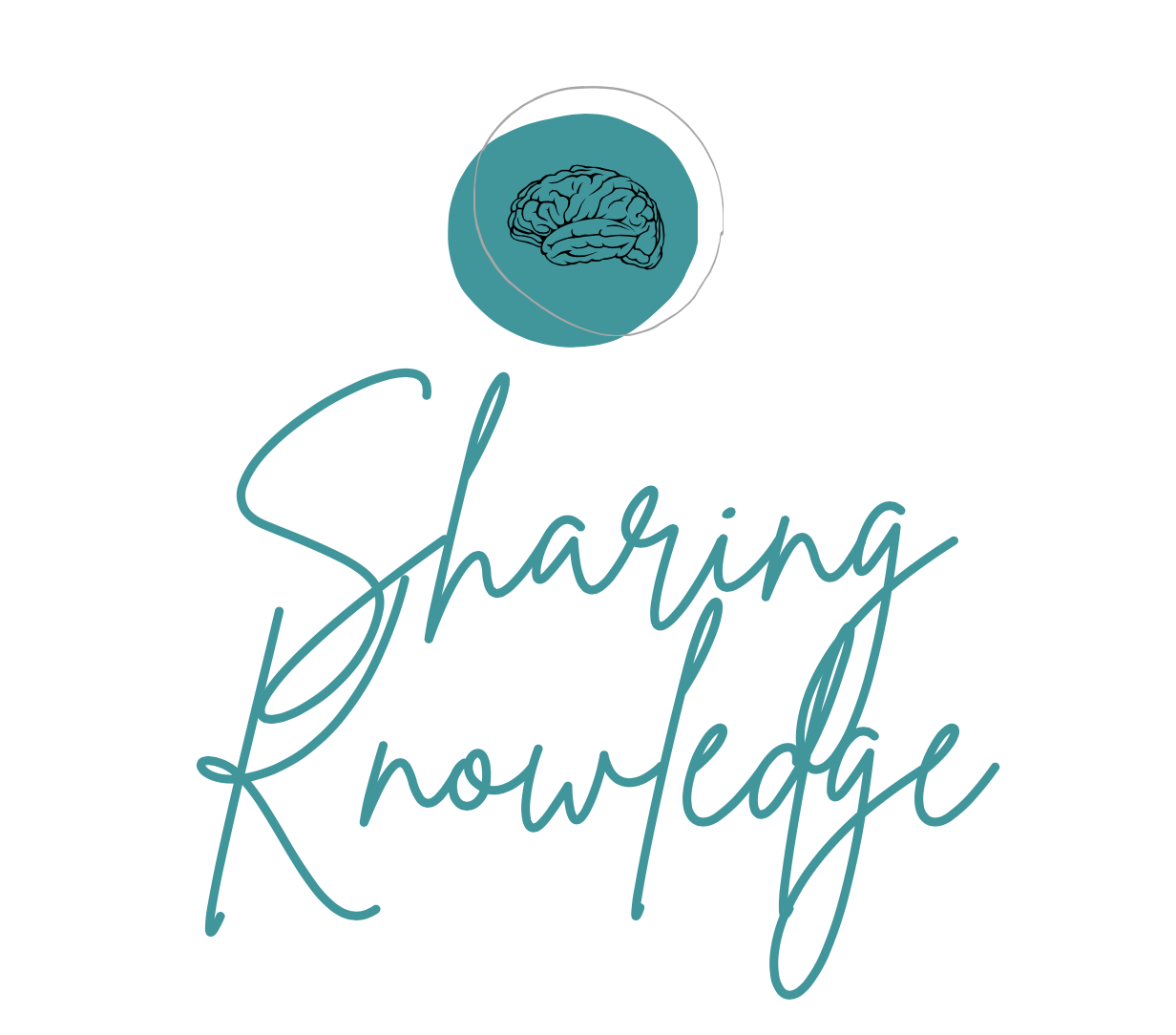






 Daisy Alvarado, OTD-S, Guest Writer
Daisy Alvarado, OTD-S, Guest Writer  Pooja Surkanti, OTD-S, Guest Writer
Pooja Surkanti, OTD-S, Guest Writer